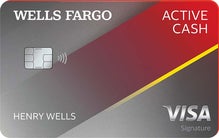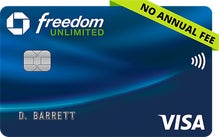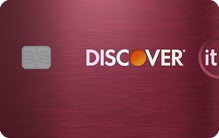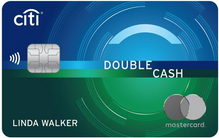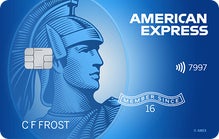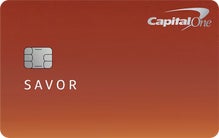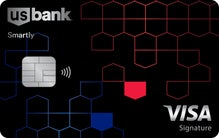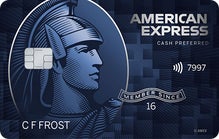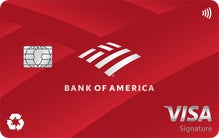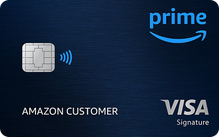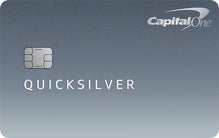Best cash back credit cards for February 2026
Get personal card recommendations
Answer 4 simple questions and get matched with cash back credit cards from Bankrate's marketplace.
What's your top spending category?
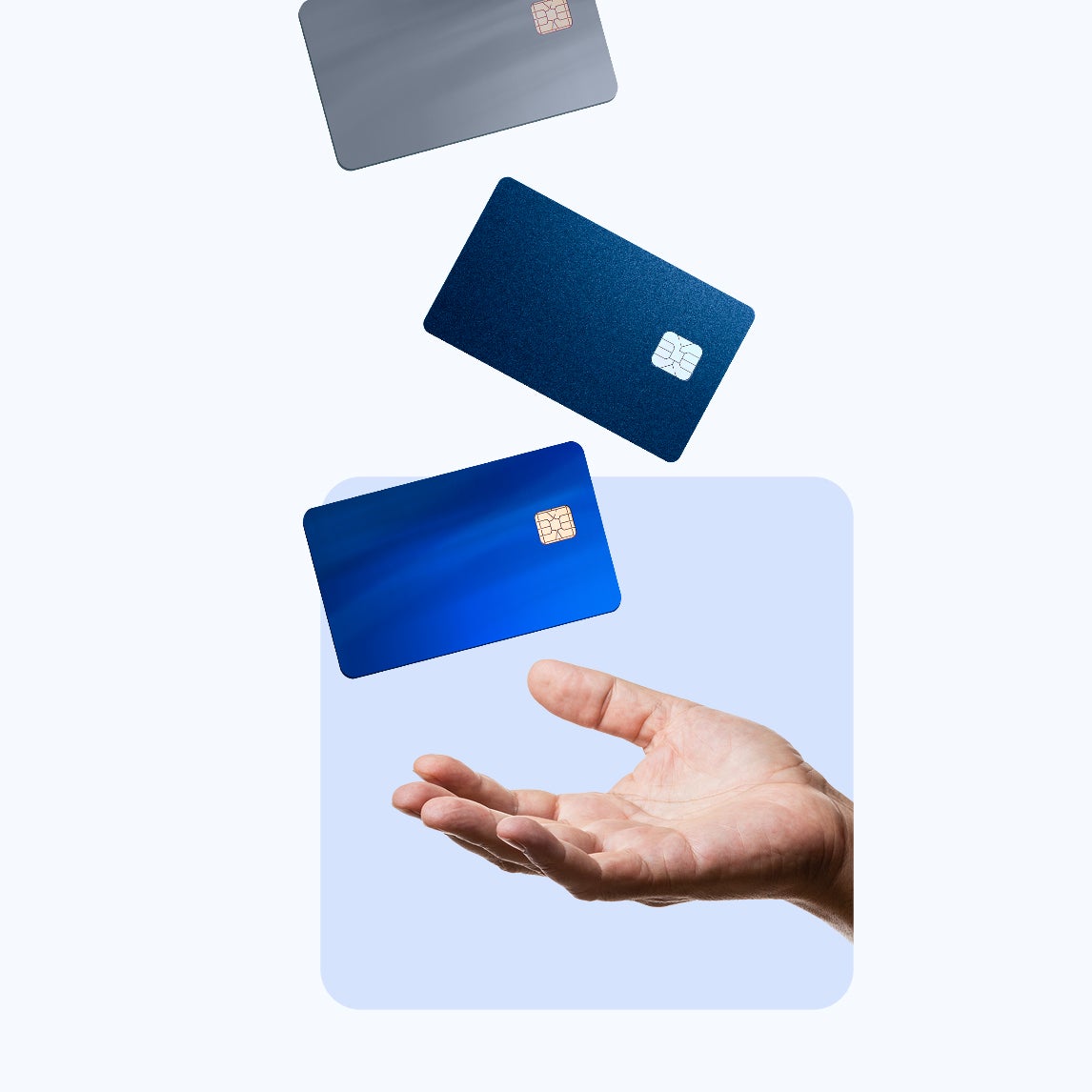
Filter by
Showing 12 results
Best for flat-rate rewards
on Wells Fargo's secure site
See Rates & FeesIntro offer
$200 cash rewards
Rewards rate
2%
Annual fee
$0
Regular APR
18.49%, 24.49%, or 28.49% Variable APR
Why you'll like this: It offers a generous flat cash rewards rate, an excellent intro APR offer and a solid welcome bonus.
Reward Details
What you should know
Card Details
Best for everyday spending
on Chase's secure site
See Rates & FeesIntro offer
Earn $200 cash back
Rewards rate
1.5% - 5%
Annual fee
$0
Regular APR
18.24% - 27.74% Variable
Why you'll like this: You’ll earn valuable, flexible points in everyday categories.
Reward Details
What you should know
Card Details
Best for rewards category variety
on Discover's secure site
See Rates & FeesIntro offer
Cashback Match
Rewards rate
1% - 5%
Annual fee
$0
Regular APR
17.49% - 26.49% Variable APR
Why you'll like this: Offers a lucrative reward rate in a generous variety of categories throughout the year.
Reward Details
What you should know
Card Details
Intro offer
$200 cash back
Rewards rate
2% - 5%
Annual fee
$0
Regular APR
17.49% - 27.49% (Variable)
Why you'll like this: Its flat cash back rate makes maximizing rewards on nearly any purchase easy.
Reward Details
What you should know
Card Details
Apply with confidence
By applying, you can see if you're approved before impacting your credit
Best for online shopping
on American Express's secure site
See Rates & Fees, Terms ApplyIntro offer
Earn $200
Rewards rate
1% - 3%
Annual fee
$0
APR
19.49%-28.49% Variable
Why you'll like this: Its cash back rates in everyday spending categories are among the best available on a no-annual-fee card.
Reward Details
What you should know
Card Details
Best for dining
on Capital One's secure site
See Rates & FeesIntro offer
Earn a one-time $200 cash bonus
Rewards rate
1% - 8%
Annual fee
$0
Regular APR
18.49% - 28.49% (Variable)
Why you'll like this: It earns boosted rewards for common food purchases, making it a great choice for foodies at home and on the go.
Reward Details
What you should know
Card Details
Best for existing U.S. Bank account holders
on U.S. Bank's secure site
See Rates & FeesIntro offer
N/A
Rewards rate
2%
Annual fee
$0
Regular APR
17.74% - 27.99% Variable
Why you'll like this: If you’re a U.S. Bank loyalist with significant savings, this card can offer outstanding cash back rewards on all purchases.
Reward Details
What you should know
Card Details
Apply with confidence
By applying, you can see if you're approved before impacting your credit
Best for groceries
on American Express's secure site
See Rates & Fees, Terms ApplyIntro offer
Earn $250
Rewards rate
1% - 6%
Annual fee
$0 intro annual fee for the first year, then $95.
APR
19.49%-28.49% Variable
Why you'll like this: It boasts one of the best cash back rates at U.S. supermarkets, making it a perfect fit for people who cook frequently at home.
Reward Details
What you should know
Card Details
Best for flexible cash back
Intro offer
$200
Rewards rate
1% - 6%
Annual fee
$0
Regular APR
17.49% - 27.49% Variable APR on purchases and balance transfers
Why you'll like this: Earn a high rewards rate in one category of your choice without sacrificing rewards on everyday spending.
Reward Details
What you should know
Card Details
on Amazon's secure site
See Rates & FeesIntro offer
Get a $150 Amazon Gift Card
Rewards rate
1% - 10%
Annual fee
$0
Regular APR
18.74% - 27.49% Variable
Why you'll like this: As a Prime member, you’ll earn great cash back rates on Amazon and Whole Foods purchases.
Reward Details
What you should know
Card Details
Best for simplicity
on Capital One's secure site
See Rates & FeesIntro offer
Earn a one-time $200 cash bonus
Rewards rate
1.5% - 5%
Annual fee
$0
Regular APR
18.49% - 28.49% (Variable)
Why you'll like this: It’s a great starter card thanks to its streamlined rewards and generous welcome bonus.
Reward Details
What you should know
Card Details
Only available in 15 east coast states and D.C.
Best for quarterly customizable categories
Intro offer
Earn $200 Cash Back
Rewards rate
1% - 3% and 2%
Annual fee
None
Regular APR
18.49%, 23.49% or 28.49% variable APR based on your credit worthiness.
Why you'll like this: It’s more flexible than the average cash back card since it lets you pick two everyday bonus categories that fit you best.
Reward Details
What you should know
Card Details
Remove a card to add another to compare
Remove a card to add another to compare
Compare Bankrate's top cash back credit cards
| Best for | Cash back highlights | Welcome offer | ||
|---|---|---|---|---|
Flat-rate rewards | 2% cash rewards on purchases | Intro Offer: $200 cash rewards Hover to learn more Regular APR: 18.49%, 24.49%, or 28.49% Variable APR | $0 | |
Everyday spending | 5% cash back on Lyft purchases (through September 30, 2027) and travel booked through Chase Travel 3% cash back on dining at restaurants and drugstore purchases 1.5% cash back on all other purchases | Intro Offer: Earn $200 cash back Hover to learn more Regular APR: 18.24% - 27.74% Variable | $0 | |
Category variety | 5% cash back on rotating categories (on up to $1,500 in purchases each quarter, then 1% back, activation required) | Intro Offer: Cashback Match Hover to learn more Regular APR: 17.49% - 26.49% Variable APR | $0 | |
Balance transfers | Up to 2% cash back on purchases (1% when you purchase and 1% when you pay) | Intro Offer: $200 cash back Hover to learn more Regular APR: 17.49% - 27.49% (Variable) | $0 | |
Apply with confidence Hover to learn more on American Express's secure site See Rates & Fees, Terms Apply | Online shopping | 3% cash back at U.S. supermarkets, gas stations and online retail purchases (up to $6,000 per calendar year in each category, then 1%) | Intro Offer: Earn $200 Hover to learn more Regular APR: 19.49%-28.49% Variable | $0 |
Dining | 3% cash back on dining, entertainment, popular streaming service and grocery store purchases (excluding Walmart® and Target®) | Intro Offer: Earn a one-time $200 cash bonus Hover to learn more Regular APR: 18.49% - 28.49% (Variable) | $0 | |
US Bank loyalists | Unlimited 2% cash back on every purchase | Intro Offer: N/A Hover to learn more Regular APR: 17.74% - 27.99% Variable | $0 | |
Apply with confidence Hover to learn more on American Express's secure site See Rates & Fees, Terms Apply | Groceries | Earn 6% cash back at U.S. supermarkets on up to $6,000 per year in eligible purchases (then 1%) Earn 6% cash back on select U.S. streaming subscriptions Earn 3% cash back at eligible U.S. gas stations and on transit (including taxis/rideshare, parking, tolls, trains, buses and more) purchases Earn 1% cash back on other purchases. Cash Back is received in the form of Reward Dollars that can be redeemed as a statement credit and at Amazon.com checkout | Intro Offer: Earn $250 Hover to learn more Regular APR: 19.49%-28.49% Variable | $0 intro annual fee for the first year, then $95. |
Apply now on Bank of America's secure site | Flexibility | 3% cash back in one of six choice categories (category can be changed monthly) 2% cash back at grocery stores and wholesale clubs (up to $2,500 in combined 2% and 3% purchases each quarter, then 1%) 25% to 75% rewards rate boost for Preferred Rewards members | Intro Offer: $200 Hover to learn more Regular APR: 17.49% - 27.49% Variable APR on purchases and balance transfers | $0 |
Amazon Prime members | 10% cash back or more on a rotating selection of items and categories on Amazon.com with an eligible Prime membership 5% cash back at Amazon.com, Amazon Fresh, Whole Foods Market, and on Chase Travel purchases with an eligible Prime membership 2% cash back at gas stations, restaurants, and on local transit and commuting (including rideshare) | Intro Offer: Get a $150 Amazon Gift Card Hover to learn more Regular APR: 18.74% - 27.49% Variable | $0 | |
Simplicity | 1.5% cash back on purchases | Intro Offer: Earn a one-time $200 cash bonus Hover to learn more Regular APR: 18.49% - 28.49% (Variable) | $0 | |
Location restriction More information about this important disclosure | Quarterly customizable categories | Earn 3% and 2% cash back on your choice of Spend Categories. Plus, you can switch your categories quarterly. 1% cash back on all other purchases | Intro Offer: Earn $200 Cash Back Hover to learn more Regular APR: 18.49%, 23.49% or 28.49% variable APR based on your credit worthiness. | None |
Why we ask for feedback
Your feedback helps us improve our content and services. It takes less than a minute to complete.
Your responses are anonymous and will only be used for improving our website.
